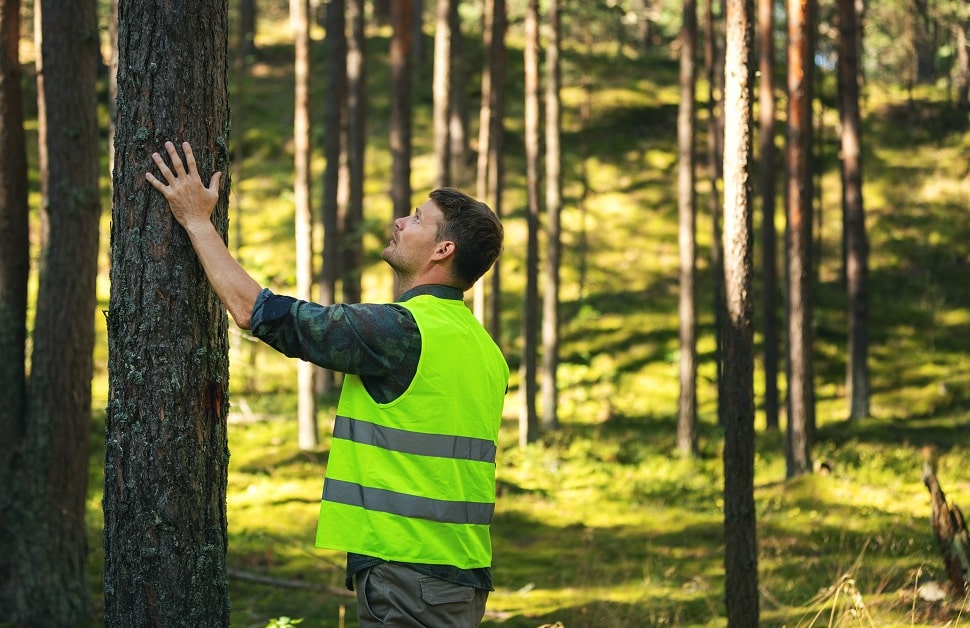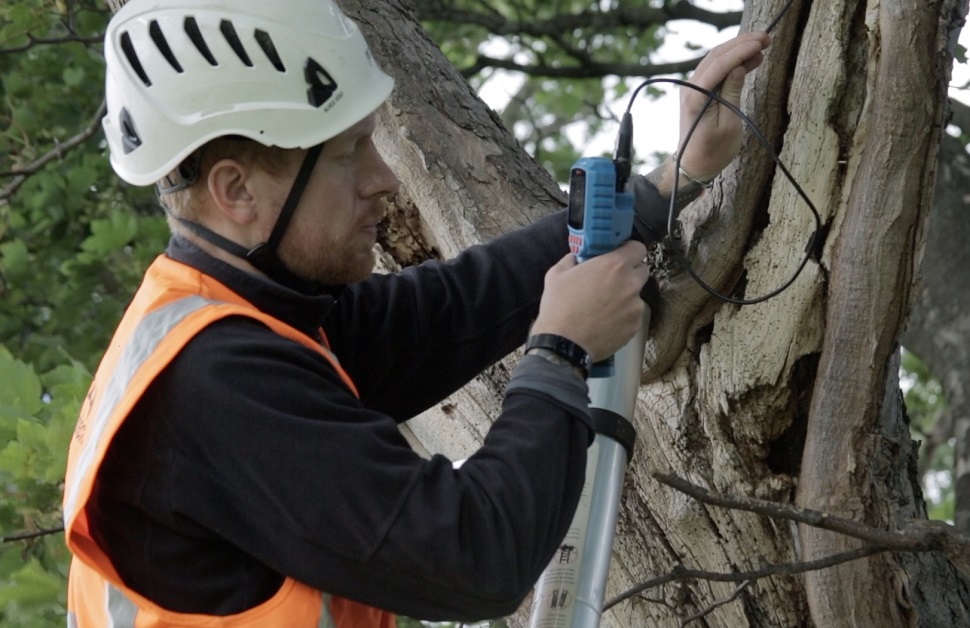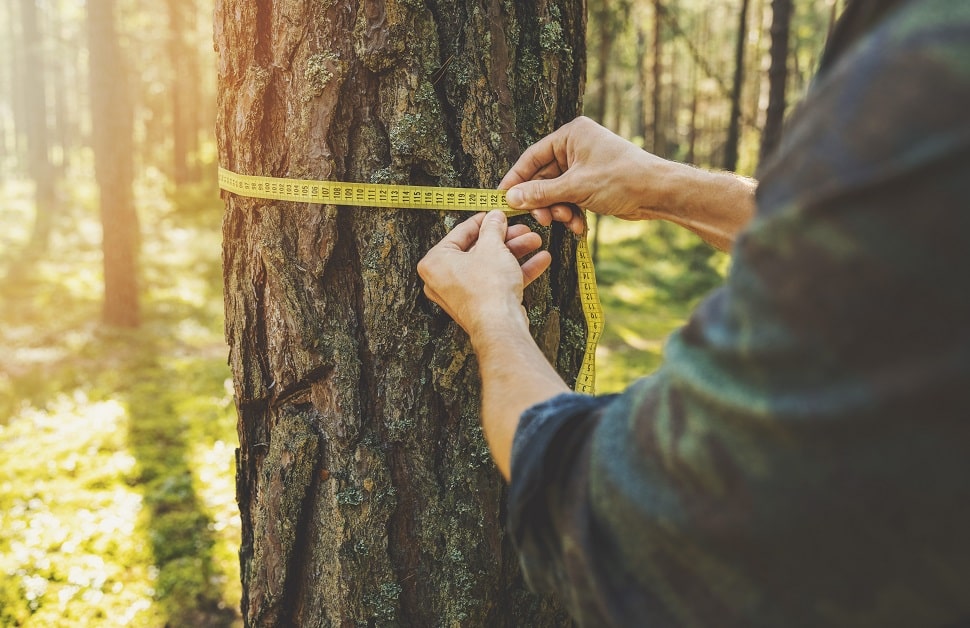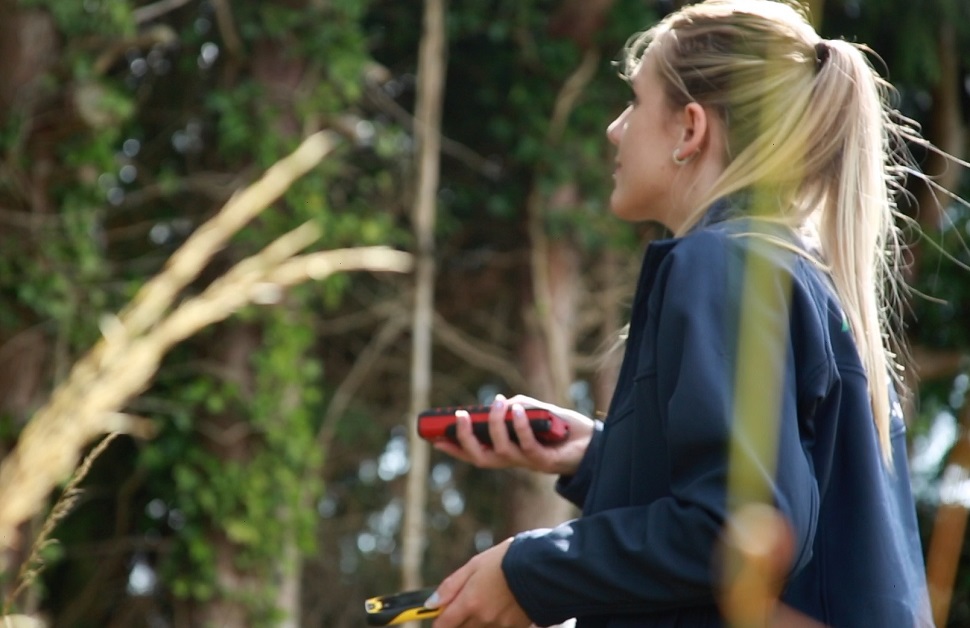For young people that are deciding their chosen career path and more experienced individuals that are looking for a change of profession in favour of a new challenge, arboriculture offers the exciting opportunity for a diverse range of individuals to learn skills that are valued and continuously needed. Working in arboriculture is the ideal vocation for anyone with an interest in nature, science or the wellbeing of the planet.
A career that isn’t completely out of reach, there are various options for gaining the necessary knowledge and qualifications to work in arboriculture, as well as the ability to work towards becoming an arboriculture specialist. It also comes with plenty of benefits such as a competitive salary and the opportunity to progress into roles with more responsibility or move into different areas within the same industry.
Whether you have aspirations of building a career in arboriculture or simply want to learn more before making a decision on your future, the information below will give you all you need to know about potential arboricultural jobs, the necessary qualifications, tips for boosting your employability and help with finding a job in this field.

What Are Some Arboriculture Jobs?
In the arboriculture industry, many people aim for a role as a form of arboricultural specialist. The role itself is, in essence, tree management and entails carrying out tree surveys and other relevant assessments in preparation for land development projects. That said, arboricultural consultants may also carry out other duties such as conservation and preservation, planning, tree climbing, and working on private gardens and public parks.
Tree Surveyor Jobs
A primary duty of an arboriculturist is to conduct tree surveys. The BS5837 tree survey is an assessment of an area that determines the potential impact on trees caused by land development projects. It is then important to analyse the quality of the trees and the disruption the project could have on them before judging which trees should be removed or retained.
Careers Related to Arboriculture
Many arboriculturists start as a consultant and develop into a senior position. Alternatively, however, there are other roles within this industry. For example, someone with experience or qualifications in arboriculture may move into commercial, municipal, private or utility arboriculture.
Another potential area is research, with options to work on behalf of government agencies, land maintenance companies, tree service companies, universities and utility companies.

Arboriculture Career Path
Before you are able to start a career in arboriculture, you will need to be aware of the required qualifications. Unlike many roles, no set qualifications are needed to become a leading arboriculture specialist. However, it could benefit your chances of forming a successful arboriculture career by gaining certain qualifications. Likewise, achieving additional qualifications could enhance your CV and make you appear more appealing to potential employers.
Arboriculture College Courses
At college level, it would be advisable to choose a course that is closely relevant to arboriculture. Not only will this give you the knowledge you need, but it will also demonstrate to future employers that you are passionate about the subject and worthy of being a successful candidate. Many modern colleges now offer courses on arboriculture, countryside management and forestry, as well as the universally recognised Level 2 National Certificate in Arboriculture.
Arboriculture Degrees
Although not mandatory, a university degree will only benefit your CV and increase your likelihood of securing employment in the future. Universities often offer bachelor’s degrees and foundation degrees in arboriculture and other relevant areas such as agroforestry, atmospheric sciences, conservation, forestry, land management and sustainability.
Masters in Arboriculture
Another method of boosting your CV, a master’s degree is not required but it could be effective in making you appear more desirable to future employers ahead of other candidates. Universities offer a handful of master’s degrees in arboriculture and forestry.

Arboricultural Careers
Alongside achieving relevant qualifications, you may be wondering what else you can do to make yourself stand out from the crowd when it comes to applying for jobs in arboriculture later down the line.
In the section below, we’ve explained what you can do to start your career in arboriculture:
How to Start a Career in Arboriculture
If you want to start a career in arboriculture, it could help to:
- Build out your social media platforms as an aspiring arboriculturist.
- Compile a list of contacts from experienced professionals within the arboriculture industry.
- Create an arboriculture blog or write about your experiences in relevant magazines.
- Develop an understanding of advanced areas such as different types of trees.
- Go to arboriculture conferences, festivals and networking events.
- Pick up internships, voluntary work and work experience, and work closely with recognised organisations that employers find to be reputable.
- Sign up to a professional arboriculture society.

How to Get a Job in Arboriculture
Once you have completed the required qualifications, earned relevant work experience and gone through some of the tips above, you should now be in a position where you can apply for arboricultural jobs.
Where to Find Arboriculture Jobs
During any job search, you will want to find an exciting opportunity at a company that has a track record for looking after employees and giving them the room they need to develop. Arbtech is an established name in arboriculture following well over a decade helping clients, and we take pride in offering the best possible careers to our employees, including arboriculture roles.
For more information on the latest arboricultural jobs at Arbtech, check out our current vacancies page.
Arboriculture Jobs Near Me
As arboricultural roles are primarily based in the countryside and a large portion of the UK is rural, aspiring arboriculturist are typically required to travel. Instead of operating within specific cities and towns, arboricultural jobs are more likely to be situated in broad sections of the country so a number of areas can be covered.
Graduate Arboriculture Jobs
In some cases, you may be able to find graduate arboriculture jobs for arboriculturists that recently completed a relevant university degree. Not only do we offer graduate roles and internships, but unlike many other companies, we don’t immediately turn away applicants if they don’t have any previous experience.
To learn more about our graduate arboriculture roles, internships and all other vacancies, check out the job section of our website or get in touch. Rather than setting a broad, unspecific job alert for roles you recently searched for, it would also be advisable to keep tabs on our website for listings of the latest arboriculture jobs, and the ability to search jobs by job title and job type in arboriculture.